Will Germans elect a government with ecology at the centre of its strategy?
Maybe this election will be the tipping point, the beginning of a greener world? William Cook in Berlin on the rise and rise of the Green party

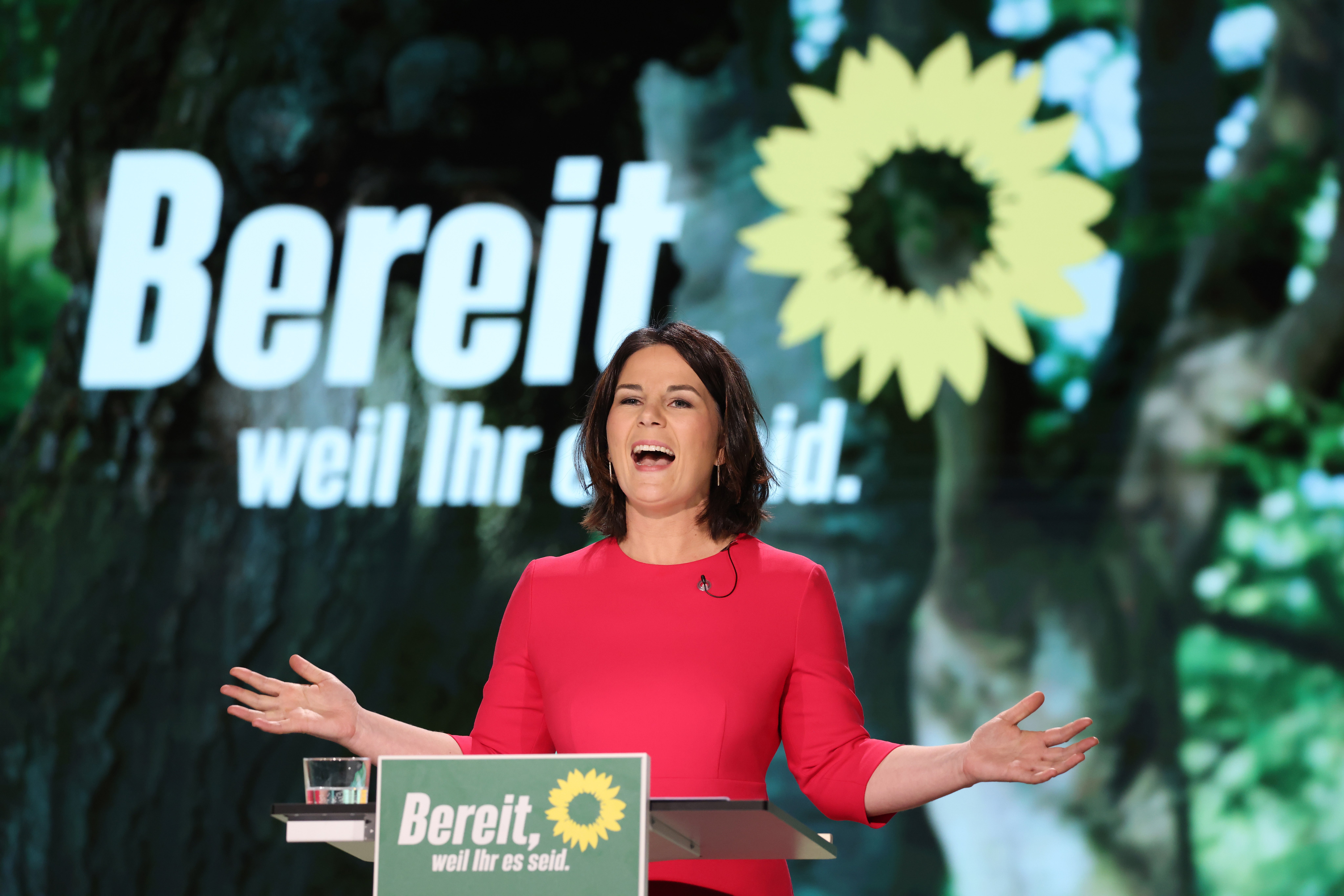
Morgen ist die Frage” (Tomorrow is the Question) reads the banner outside Berlin’s most famous nightclub, Berghain. There’s no dancing here right now, due to Covid restrictions, but in the meantime this legendary club has become a gallery, and the current exhibition reflects an issue that’s uniting German voters, left and right. Berl-Berl is a mesmeric show by video artist Jakob Kudsk Steensen, filmed in the Spreewald, a wetland wilderness an hour’s drive from Berlin. On one level it’s a hypnotic treat, a feast for the ears and eyes, but like all the best artworks it also works on a deeper level. Berl-Berl is a cri de coeur for the environment, and when Germans go to the polls tomorrow, this burning issue will be centre stage.
Sunday’s election is a watershed in German history. Angela Merkel is stepping down, after 16 years as chancellor, and the future of Germany (and Europe) is up for grabs. For most of her time in office, Merkel’s centre-right Christian Democrats (CDU) governed in a grand coalition with the soft-left SPD (Germany’s electoral system means it’s virtually impossible for one party to win an absolute majority). Merkel’s centrist leadership pulled both parties towards the middle ground, and although Merkel herself remained popular, the popularity of both parties in her coalition slumped. Yet rather than migrating to Germany’s hard left or far right parties (Die Linke or AfD) many disenchanted moderates have flocked to Die Grünen (the Greens), a party that draws support from both left and right.
Currently, Merkel’s CDU, the SPD and Die Grünen are all polling around 20 per cent, which points to another coalition, but this time the Greens are the kingmakers – and for anyone who cares about climate change, the consequences could be huge. Europe’s most populous and powerful country looks set to elect a government with ecology at the centre of its strategy. If Germany sets tougher environmental standards the European Union will surely follow, and any third country which wants to do business with the EU (including Britain) will have to adhere to these new regulations. Maybe this election could be a tipping point, the beginning of a greener world?
Die Grünen was founded in 1980 in Karlsruhe, West Germany, spearheaded by idealistic veterans of the student protests of 1968. Right from the start, their radical ideas enjoyed remarkably broad appeal. “We’ve got back-to-the-land romantics, drop-outs, young anarchists, Christian pacifists, utopians, socialists, and dogmatic conservatives who think animals are more important than people,” said the party’s charismatic co-founder, Petra Kelly. The four pillars of their fledgling manifesto were ecology, grassroots democracy, social responsibility and non-violence. No one in Germany (or the rest of Europe) had ever seen anything quite like it before.
Formed at the height of the Cold War, the focus of this new party was the threat of nuclear annihilation, but its ideological roots ran deeper. The party also drew on an innate attachment to the natural world that’s ingrained in German society. Throughout Germany’s troubled history, a shared love of the German landscape has been a powerful unifying force. The environmental crises of the 1980s – the pollution of its majestic rivers, the desecration of its vast forests – struck at the heart of Germany’s fragile sense of nationhood. The Greens may have looked like an anti-establishment party, a ragbag of hippies, peaceniks and refuseniks, but its defence of the German countryside was profoundly patriotic. Nature was the one thing all Germans could agree on, the only thing left untarnished by the Third Reich.
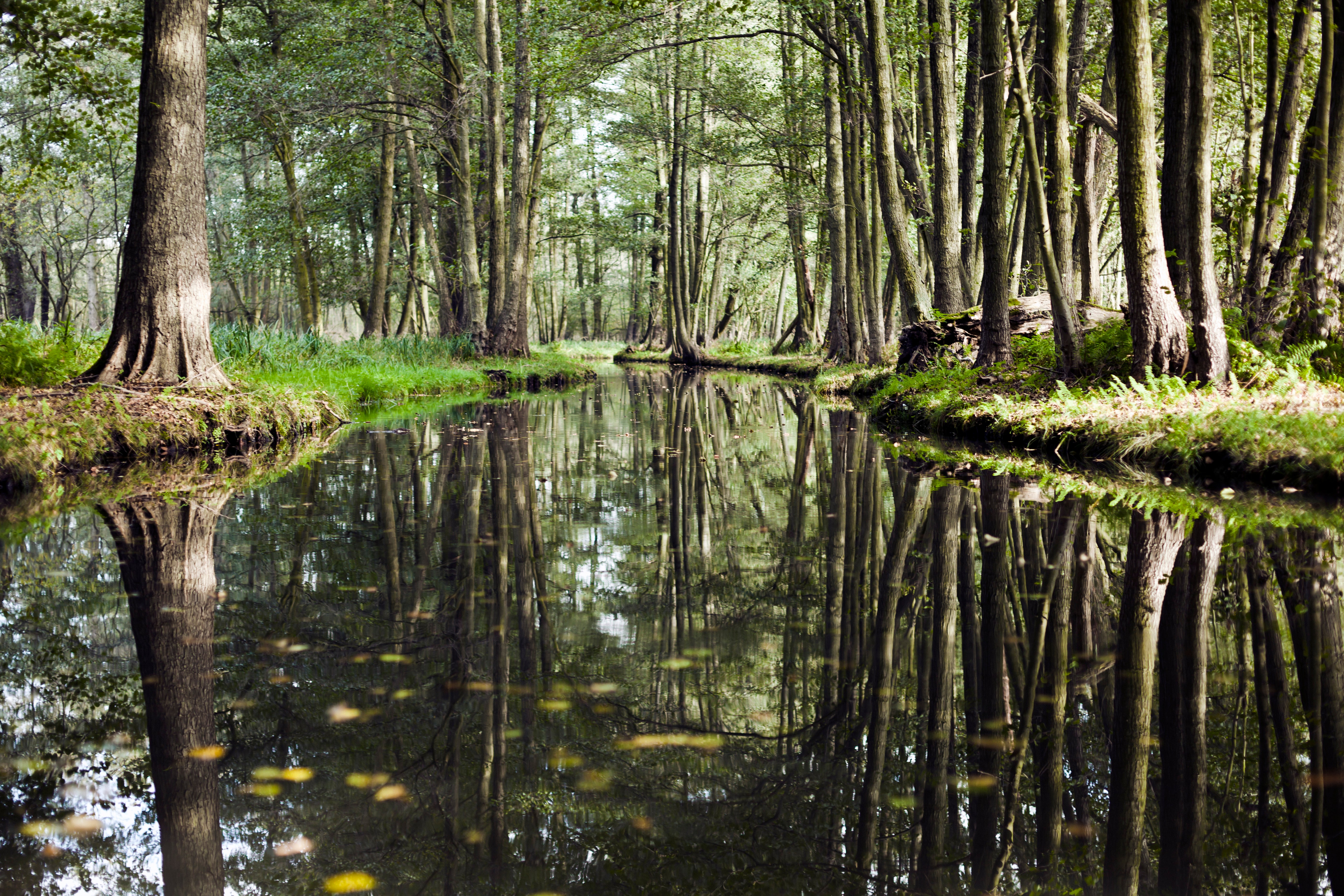
“Germans tend to have this romantic relationship with nature which dates back to Caspar David Friedrich,” explains Sabine Oberhuber, German co-founder of Turntoo, a firm which helps companies to reduce (and ultimately eliminate) material waste. The artist Caspar David Friedrich is relatively unknown outside Germany, but here he’s a national institution. Like Constable in England, he created an image of the countryside which encapsulated the identity of the nation. Before Germany became a nation state, in 1871, German nationalism was driven by poets and painters as much as politicians. A third of Germany is woodland. The forest is the setting for Germany’s myths and fairytales. For modern Germans, who’ve drifted away from Christianity, love of nature is the closest thing they have to a religion.
At first the Greens was primarily an anti-nuclear protest party. Galvanised by the Chernobyl disaster and Nato’s decision to site nuclear weapons in West Germany, it picketed nuclear power stations and nuclear missile bases throughout the Bundesrepublik. Although the party was only active in West Germany (the East German “Democratic” Republic forbade all political parties apart from the ruling Communist party), the Greens rejected the polarised politics of the Cold War. “Neither to the East nor to the West, but loyal to one another,” was the mantra. Kelly described the Greens as an “anti-party party – beyond the politics of left and right”.
The Greens stood in German elections in 1980 and 1982, but didn’t win any seats. The party made its breakthrough in the 1983 national (Bundestag) elections, entering parliament with 27 seats and 5.4 per cent of the vote. In the 1987 election it increased its standing to 8.3 per cent and 42 seats. In 1998 it entered government, in coalition with the SPD, with Green MP Joschka Fischer serving as vice- chancellor and foreign secretary.
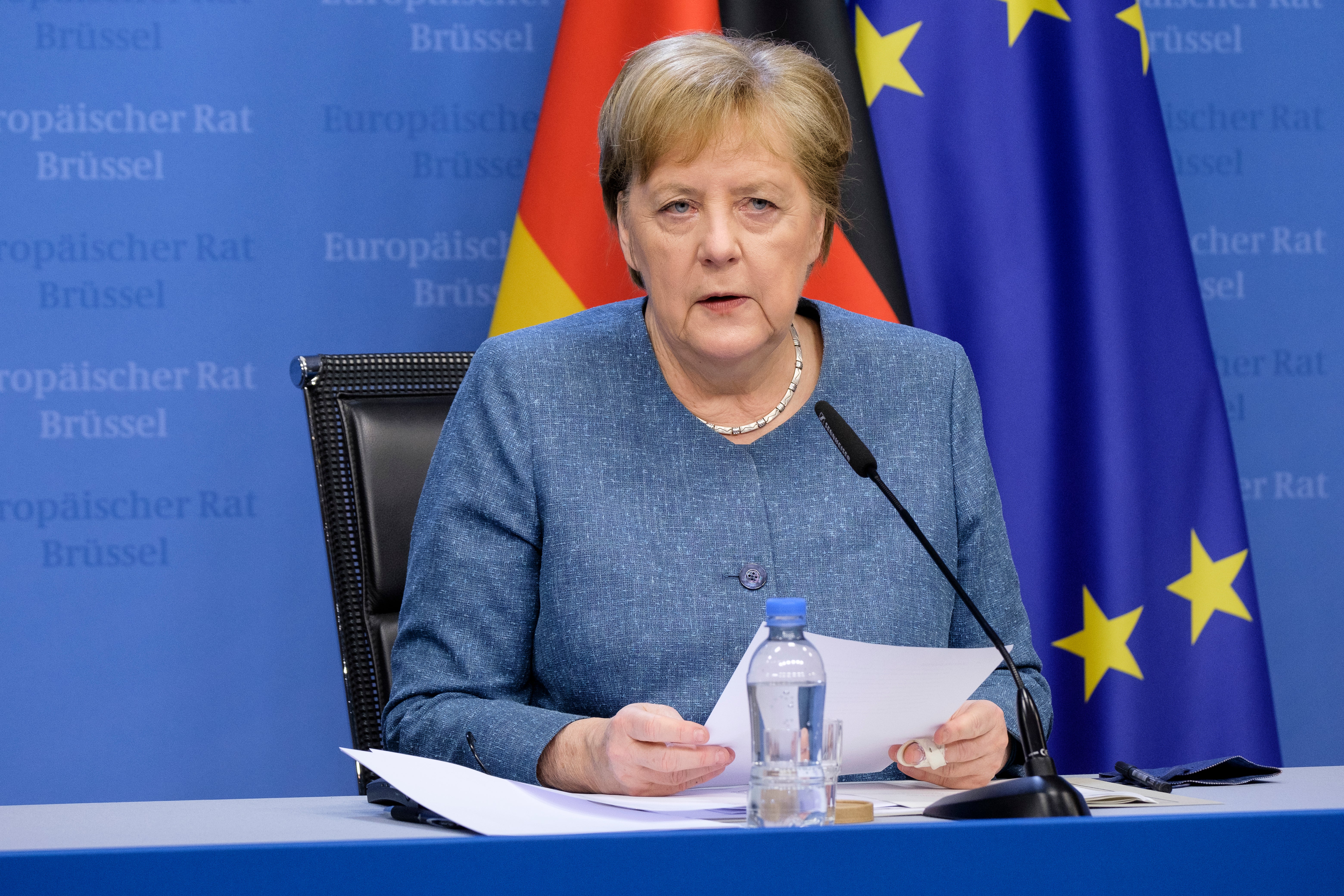
When Merkel became chancellor in 2005, the Greens went into opposition on a national level, but on a regional level it went from strength to strength. Germany is a federation of 16 states, more like the US than the United Kingdom, and each state parliament (or Landestag) wields considerable power. The Green Party is in government in 10 of these 16 state parliaments, and Baden Württemberg, Germany’s richest state (home of Porsche and Mercedes) now has a Green leader.
Power sharing has compelled the Greens to be pragmatic. The heady idealism of the 1980s has made way for a more measured realpolitik. They’re no longer pacifist. They’re no longer anti-Nato. The Realos (realists) have won the internal struggle against the Fundis (fundamentalists). Die Grünen is no longer just a talking shop. It’s a party with real power.
Strategically, the Greens’ greatest strength is its versatility. On a regional level, it has been in coalition with virtually every party, apart from the far right AfD. This flexibility will be a priceless asset if the forthcoming election goes to form. If the CDU, the SPD and Die Grünen remain neck and neck, the next government will almost certainly be a coalition between two of those three parties, possibly propped up by the free market liberals of the FDP. With precious little appetite for another grand coalition, that puts the Greens in pole position. As in all German elections, there are numerous potential permutations, but it’s hard to see a coalition emerging from this election which doesn’t include a leading role for the Greens.
A third of Germany is woodland. The forest is the setting for Germany’s myths and fairytales. For modern Germans, who’ve drifted away from Christianity, love of nature is the closest thing they have to a religion
If the Greens had chosen a better candidate for the chancellorship, Germany might have even ended up with its first Green chancellor, but with Annelena Baerbock as their candidate that now looks increasingly unlikely. Baerbock is only 40 (no age at all in German politics) and has only been an MP since 2013. A long election campaign has exposed her relative inexperience. Personable and telegenic, in Britain she’d be the ideal candidate but, for better or worse, Germans tend to prefer their politicians old and dull.
Yet whoever wins on 26 September, Die Grünen has changed the political landscape here in Germany. To stem the Green tide, the CDU and SPD have both adopted Green ideas. “That is really the huge success story of the Greens,” says Professor Johannes Vogel, director of the Museum für Naturkunde, Berlin’s Natural History Museum. “They have completely shifted the debate in Germany.” With or without the Greens, Germany is changing, from a country dependent on fossil fuels to a carbon neutral economy. Iconic companies such as Volkswagen are currently undergoing a huge paradigm shift, moving from petrol to electric vehicles.
It won’t be cheap or easy, but eventually it should give German industry a massive competitive advantage. When companies in other countries are finally forced to change, Germany’s Green economy will already be up and running. “It’s going to cost them in the short term, but it’s going to make them world leaders in necessary industries in the medium to long term,” concurs Professor Vogel. Germany’s Green revolution isn’t just about who you vote for: it’s a different attitude, a different lifestyle (after all, as Vogel says, “there’s nothing more political than nature”). So what are the implications of this sea change? I went to a conference in Berlin called Berlin Questions to find out.
Humans have all it takes to get us out of this mess, so there’s no reason to be pessimistic. Germany should be a leader for getting us out of this
“All spheres and facets of the urban life we knew are under siege,” says Berlin’s Mayor, Michael Müller, in his opening address, explaining how Covid has been a catalyst for the greening of Berlin, accelerating a process which was already underway. “The pandemic is bringing not only ordinary challenges into sharp focus, but society’s big questions as well. That’s because the pandemic struck in the midst of what were already sweeping changes – digital transformation, urbanisation and climate change.”
The next day’s session is in a derelict city centre factory, a redundant relic of the GDR. Normally this empty plot would be earmarked as a prime site for redevelopment. However now Berliners are asking whether their city needs more new buildings, or whether they’d be better off with more green spaces instead. The subject of today’s debate is “Why we need a global moratorium on new construction.” Of course, right now such a moratorium is just a pipedream, but all revolutions begin with unthinkable ideas.
And the time to think the unthinkable has surely come, for the stakes have never been higher. “If we denude ecosystems so that the normal cycles of life cannot work, eventually the system will not supply us with clean water, clean air or fertile soils, and that will make it very difficult for a species of eight billion to survive,” Professor Vogel says. “That’s not what people want to hear. People want to be told that a moderate amount of change – perhaps a little bit more tax here, a little bit more debt there, bringing your bottles to the bottle bank – will be enough. That’s what they want to hear. The challenge will be to create broad societal coalitions that will facilitate or even empower the necessary political change.” Yet despite this gloomy prognosis, Vogel remains optimistic. “Humans have all it takes to get us out of this mess, so there’s no reason to be pessimistic,” he says. “Germany should be a leader for getting us out of this mess. That would be my hope.”
As architects we are responsible for 40 per cent of the CO2 emissions in the world, so we can make a huge contribution by building more sustainably
I finish off the evening at Frea, Berlin’s first zero-waste restaurant. “I want to wake up for a purpose,” says the restaurant’s proprietor, David Johannes Suchy, during a quick break from the kitchen, over coffee and dessert. His stylish restaurant is vegan, but his business model goes way beyond simply shunning animal products. David turns all his kitchen waste into compost (in a composter in a back room of the restaurant) which he gives away for free, to farmers who supply his vegetables. He prioritises suppliers who do without plastic packaging. “I love to make a change,” he says.
It’s in places like Frea that you sense things are really shifting. This isn’t a top-down revolution, driven by politicians. It’s coming from the bottom up. At the Hamburger Bahnhof, Berlin’s leading modern art gallery, there’s an exhibition about Joseph Beuys, the iconoclastic German artist who was one of the Green’s early champions (his greatest artwork consisted of 7,000 oak trees, planted in the German industrial city of Kassel). During his lifetime, Beuys was dismissed as a hopeless dreamer. Now his ideas seem like common sense. Alongside this retrospective is an exhibition focusing on the consequences of pollution. Ecology isn’t just a party-political issue in Germany. It’s part of the Zeitgeist, something in the air.
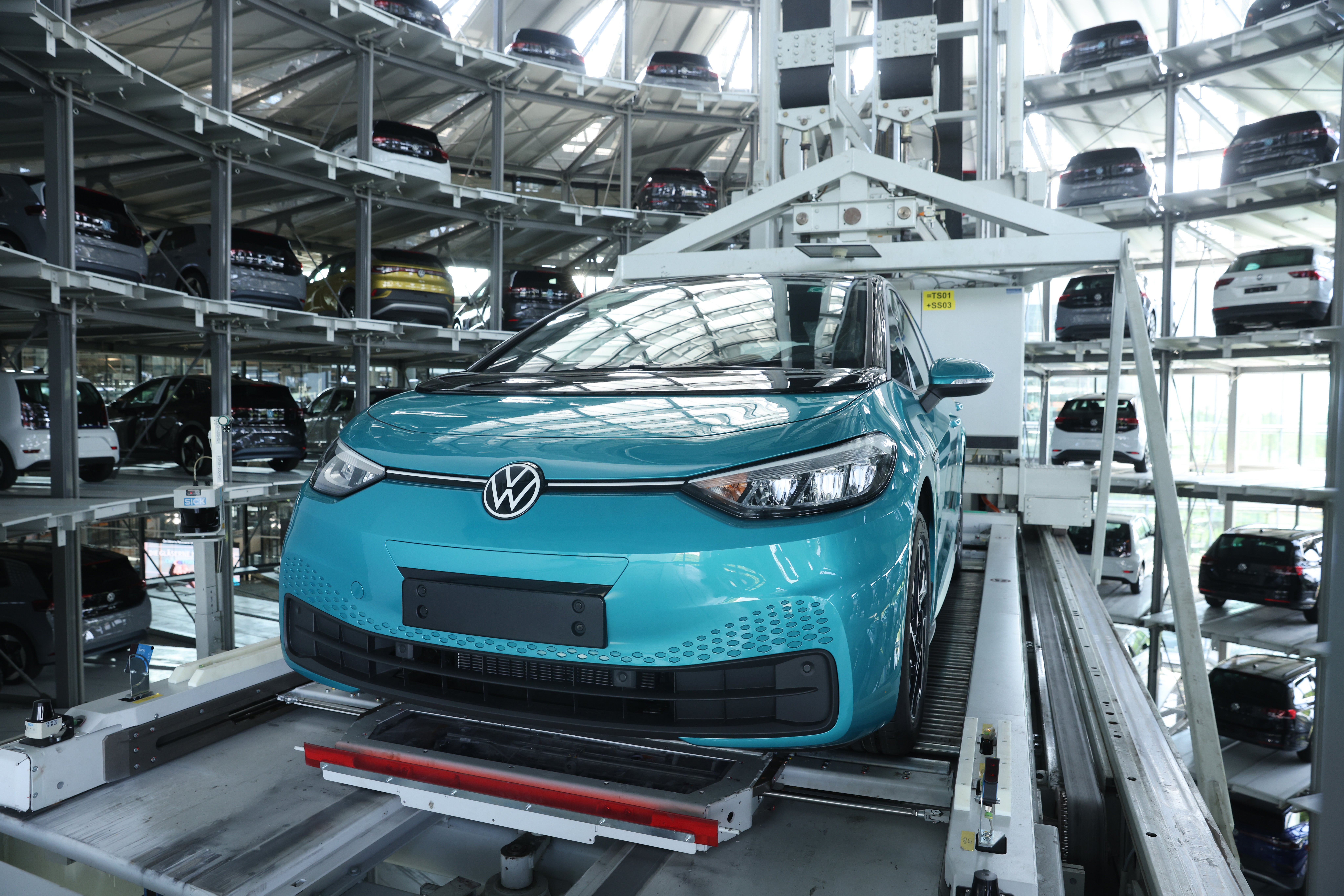
Next morning, I meet leading German architect Martin Henn in his high-rise office overlooking Alexanderplatz, one of Berlin’s biggest building sites. The construction industry is one of the biggest contributors to global warming, but Martin Henn’s practice shows it doesn’t need to be that way. He’s all about adapting and renovating existing buildings, making them more energy efficient, recycling old materials and using environmentally friendly materials for new-builds. “The awareness has changed fundamentally. It is a crisis that we’re in and there’s an urgency to react,” says Henn, as he shows me his designs for new buildings in Germany and beyond. “As architects we are responsible for 40 per cent of the CO2 emissions in the world, so we can make a huge contribution by building more sustainably.” Sustainable building isn’t an expensive luxury. In the long run, it’s more economic too.
Slowly but surely, German firms are waking up to the reality that ecology isn’t an extravagance but a necessity. “The circular economy is a business opportunity – it’s an innovation opportunity,” says Oberhuber. “Being Green and being more economic is the same thing. It’s about saving resources, it’s about saving energy – it’s about doing things more intelligently.” The CDU and SPD may not move far enough or fast enough without the Greens to force their hands, but at least they’re moving. And where Europe’s biggest economy leads, other economies will surely follow.
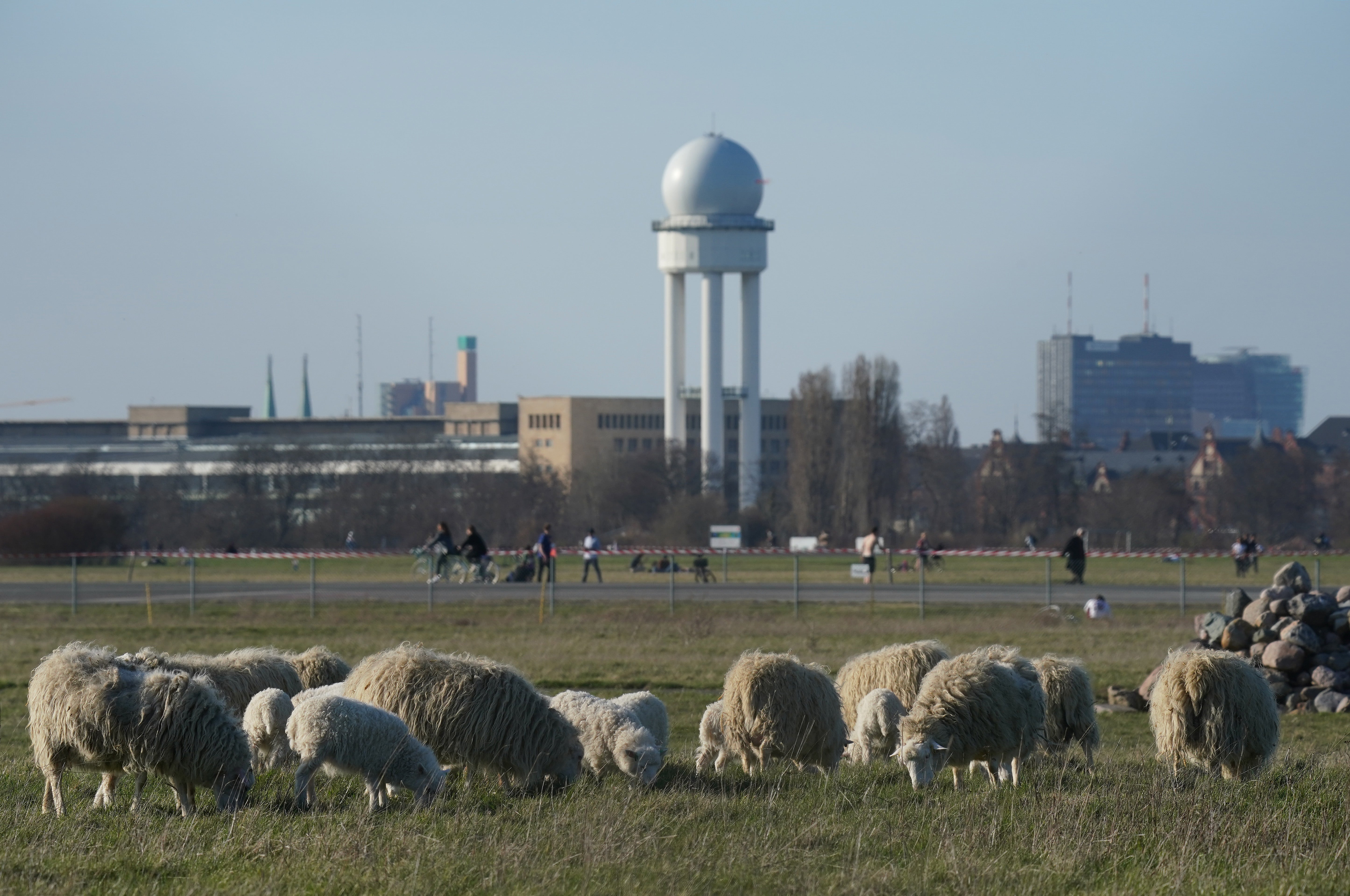
On my last day in Berlin I went to Tempelhof Airport for the final day of the conference. When it opened in 1923, Tempelhof was Europe’s most modern airport. Since it closed, in 2008, it’s become an enormous park. The conference venue is an old reservoir on the edge of the airfield, now a nascent nature reserve. Today it’s full of Green activists, creating an urban sanctuary for endangered wildlife. Never mind Die Grünen – this is Green politics in action, transforming a toxic dump into an inner-city Eden.
There are loads of inspiring speakers here today, but the ones that capture my imagination are two Berlin-based Austrian activists called Georg Reinhardt Eck and Marianne Ramsay-Sonneck. Their revolutionary concept is called Organisms Democracy – a brand new way of thinking about green spaces, from private gardens to public parks. They believe in giving animals an equal say in what happens to these spaces. Since we can’t ask animals what they want, say Georg and Marianne, we need to learn about their needs and act as their delegates, in a parliament where all organisms are represented.
“Non-humans have a right to live, and they should have political rights too,” says Marianne. “Organisms Democracy is a political system that gives equal political rights to all living beings. We have acquired allocated spaces, and within these premises we have been actually executing such a system. We find people to represent non-human species and we put together a parliament, and this parliament of organisms takes decisions, and these decisions are then implemented, so there are real consequences. It is a real power-sharing of all organisms.” Superficially it sounds absurd, but morally it makes perfect sense, and Marianne is utterly sincere. “I believe we’re at a tipping point, and I don’t believe it’s a fight we can give up, even if we lose.”
It's a transformative idea, and it makes you realise that if we really want to save the world, we need to learn to respect the rights of all living creatures, not just ourselves. This is the sort of revolutionary thinking that’s happening in Germany, supported by state funding, but above all driven from below. Climate change has reached a crisis point, but the good news is that here in the industrial powerhouse of the EU attitudes are changing. “Germany is rich enough to be Green, and what it needs to demonstrate is whether it really means to be Green,” says Professor Vogel. “A sustainable circular economy needs to be invented, and somebody needs to lead it, and Germany probably has all it takes to be that leader – bar, at the moment, the political will.”
Has that moment finally arrived? We’re about to find out.




Join our commenting forum
Join thought-provoking conversations, follow other Independent readers and see their replies
Comments